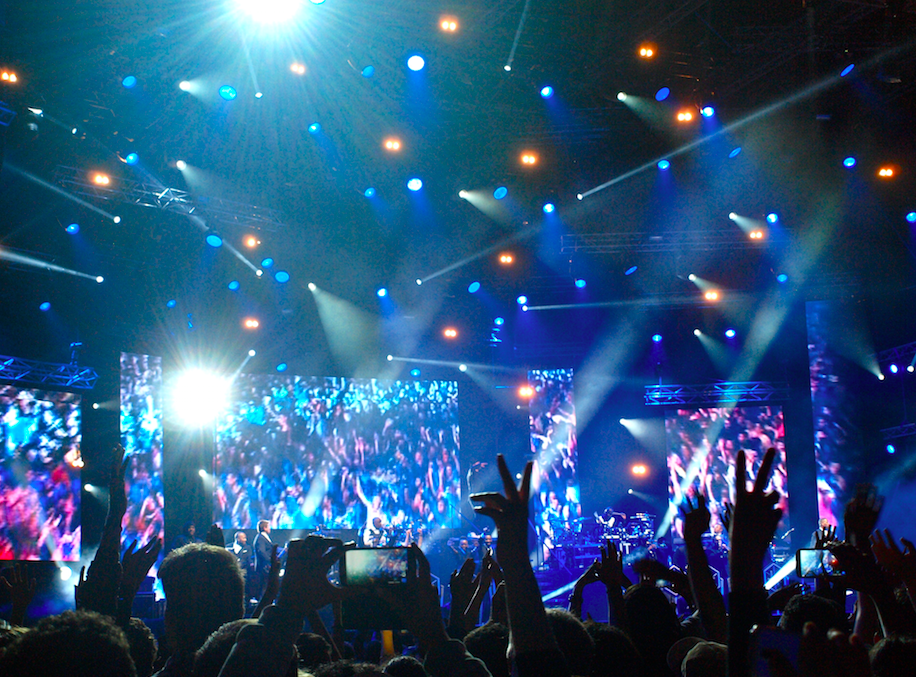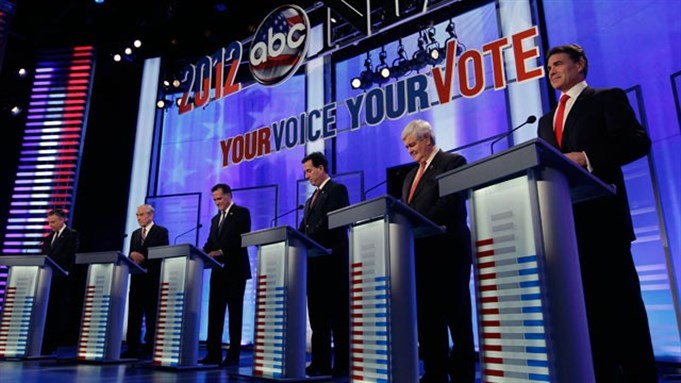The thirteenth annual Mawazine: Rhythms of the World festival concluded this summer after a ten-day run in Rabat. Mawazine is Morocco’s premiere music festival and the second largest music festival in the world, with a record-setting attendance of over 2.6 million attendees this year. Though the festival’s advertised objective is to promote a positive, modern image of Morocco and provide a platform for local musicians to get more international exposure, Mawazine has also highlighted the growing inequality and interclass tensions that are palpable throughout its urban centers.
Mawazine’s website describes the festival as a “meeting point for music lovers and amateurs...offering a striking view on the world`s musical creation.” The festival’s lineup, featuring international stars like Stromae, Alicia Keys, and Justin Timberlake, exemplified the kind of headline-grabbing program that the Mawazine organizers strive to offer each year. The festival is primarily a tool of cultural diplomacy for the Moroccan state to display an image of tolerance to the international community. While Mawazine officials claim that the festival is funded entirely from private sources, its website proclaims that the event is “Under the high patronage of his majesty the King Mohammed VI.” Furthermore, many of the festival’s sponsors operate in a murky public-private context that blurs the lines between the two sectors.
In fact, this approach—seeking legitimacy from outside audiences at the expense of locals—is symptomatic of a larger phenomenon in Morocco, where Western foreigners are given preferential treatment above many native citizens. Visual politics play an integral role in accessibility in Moroccan society. People who look foreign, wealthy, or otherwise elite often have a completely different experience than less privileged Moroccans, even at the same event.
The United Nations Human Development Index ranks Morocco’s HDI value loss due to inequality at 29.7 percent, higher than both the overall world average and the average for Arab countries. This is due largely to disparities in education and income. While the festival’s free programming allows people access to high-profile music events that they could not otherwise attend, critics assert that spending millions on a music festival is irresponsible when illiteracy, poverty, and hunger are pressing issues. In 2011 during a parliamentary debate, some members expressed opposition to devoting government resources to a music festival rather than the more serious concerns the country currently faces. Others have argued that Mawazine highlights the openness of Moroccan society and enriches the cultural sphere.
Though Mawazine has no minimum entrance fee, attendees can pay for a Gold Card, which allows holders to stand in a special area at the front of the crowd at any of the main stages for the duration of the festival. Limited numbers of Black Level passes, with backstage access, are granted to the press and those with a direct connection to Mawazine or its sponsors. The Gold Card costs 4,000 MAD (about 480 dollars), roughly sixteen percent of the yearly gross national income (GNI) per capita. At a free festival in a deeply unequal society, the passes become symbols of the privilege of access that permeates the Moroccan social atmosphere.
Iranian folk group Ensemble Shanbehzadeh performed one evening at the Mawazine venue at Chellah, the ancient Roman ruins on the edge of Rabat proper. One of Mawazine’s smaller, ticketed concerts, it was attended mostly by older expats and tourists. Several large tents had been set up around the normally sparse site, and security personnel outside the tents allowed foreigners like myself to enter easily, despite a lack of formal attire and with the barest glance at my press pass.
Inside one of the tents was a private party for employees of BMCE, a major bank in Morocco and a Mawazine sponsor. A sea of middle-aged and older businessmen in suits, milling around a carpeted venue complete with sky lights and low-slung white sofas, the venue had been constructed practically overnight for the festival. In the center of the room was a bar, and waiters served champagne, sushi, and elaborate hors d’oeurves. Though I was clearly not a BMCE employee, no one questioned my presence there; a waiter arrived immediately with drinks and plates of food, imploring me to stay longer when I stood up to leave. My apparent identity as a Western foreigner granted me not only privileged access, but a warm reception, without evidence that my presence benefitted the event in any way. Far from unique, such experiences of differential treatment are a daily occurrence for those on both sides of the access privilege divide.
The performances on 2 June included Stromae at the international OLM Souissi stage and rap acts, including Morocco’s Muslim, in Sale. Though fairly obscure on the international scene, Muslim is a sensation in his home country, and has produced a number of solo albums and collaborated with other Tangier rappers as a member of Zanka Flow. The Stromae concert attracted more spectators than any previous Mawazine event, with over 150,000 attendees. Virtually everyone I spoke with cautioned me against going to the Muslim concert for fear of the “dangerous people” in the crowd. But beneath their concern was an undercurrent of disapproval of Sale, Rabat’s less affluent neighbor.
.png)
[Muslim points his microphone at the crowd as they sing along. Image by Melissa Smyth.]
“I’m going to the Stromae concert in Souissi, with the kilimini,” one man joked, using the recently-coined slang term for wealthy Moroccans. The term, which also has connotations of shallowness, literally means “he eats from me,” suggesting the elite gained their wealth through corruption.
The duality is complex: despite the thinly veiled contempt many Moroccans have for the wealthy, there is still a pervasive disdain for the lower classes. In a country governed by a monarch who is also its largest business owner, wealth and personal worth are deeply intertwined, while poverty is associated with personal moral inadequacy. Historically, elite families held so much influence in Moroccan society that their surnames were closely tied to specific sectors, such as the Benslimane family in government and administration. Some would argue that this influence continues to the present day.
These widespread social attitudes augment structural barriers with symbolic ones. While the OLM Souissi stage is located in a more affluent area, this does not wholly explain the divide, as audiences are often drawn from all over the Rabat-Sale metropolitan area and beyond for each of the concerts.
A train ride between any of the major cities reveals the dramatic contrast between the living conditions of the rural poor and the wealthy just miles away. Villagers living in modest one-story homes outside Rabat lead donkeys hauling water pumped from a well at the end of the road. In nearby Souissi, upper class families live opulently, in large villas behind high walls with a live-in domestic staff, and access to a bevy of luxury businesses and services catering specifically to them.
The Sale stage is located on the outskirts of a residential neighborhood. Sale, Rabat’s sister city, lacks the glitz of impressive office buildings and cosmopolitan atmosphere of the capital. I heard the concert before I saw it, rounding the dark corner of what would have looked like an abandoned lot if not for the floodlights up ahead. Though the stage was smaller, the crowd was at least as large as the audience at Timberlake’s opening night performance in Souissi.

[View from the "Gold Level" section at Justin Timberlake`s performance 30 May in Souissi, a wealthy Rabat neighborhood. Image by Melissa Smyth.]
Security was tight at the venue and throughout the festival. In 2011, a stampede at the Hay Nahda stage killed eleven spectators and injured forty others. Rabat governor Hassan Lamrani attributed the stampede to a group of concertgoers choosing to climb over guard rails rather than use the designated exits. Others claimed police had closed exits and failed to ameliorate the situation.
In Sale, there seemed to be widespread concern that violence would break out. “People threw bottles at the stage last year,” a Rabat man said. Despite fears, there were no major incidents during the performance, but past events combined with current insecurity created an undercurrent of fear that permeated the festival.
Some might have considered the Muslim concert crowd “bouzebal,” a kind of companion term to kilimini denoting a lower-class person. Like kilimini, it has a negative connotation, but some self-identify as bouzebal with a sense of pride. Bouzebal was popularized by a meme turned animated Youtube series featuring a character of the same name, who engages in a variety of antics in his working class Casablanca neighborhood. That both of these terms are recent additions to the Moroccan lexicon points to the growing class consciousness in popular culture.
Rap has played an undeniable role in the modern political consciousness of the Moroccan underclass. Many artists rap about corruption, poverty, and other social issues. Casablanca rapper Si Simo (Mohammed Hoummas) penned the song “Kilimini” to draw attention to social inequality in his country. Few Moroccan artists can support themselves entirely on income from their music, and even fewer receive state support; thus, the rap scene has been more resistant to the corporatization that has occurred in many other countries, and rap music has remained very much connected to the concerns of ordinary citizens.
Still, rap’s growing acceptance in the mainstream music scene has led to partial validation of certain artists by the Moroccan government. Rappers such as Don Bigg and Chekh Sar are seen as more conservative, pro-government artists. This has been a source of tension between Bigg and El Haqed, a rap artist whose music often criticizes the monarchy and the police and draws attention to various social problems in Moroccan society. The 20 February movement, the Moroccan iteration of the 2011-2012 protests, quickly adopted El Haqed’s work as an expression of their cause; his subsequent arrest and imprisonment solidified both his popularity and his status as a voice of the movement. After public outcry and social media attention under hashtags like #freel7a9ed (using numeric Arabic transliteration), El Haqed (Mouad Belrhouate) was freed, but he was incarcerated for a third time in May on apparently bogus charges before being released again last month.
Morocco’s security situation is increasingly unstable: rising insecurity in Casablanca has reached such a pitch that the king has spoken publicly on the issue in hopes of fostering a resolution to the crisis. Gang activity has been cited as the cause, particularly on the tchermil phenomenon, an emerging practice in Casablanca and other cities across the country. Those associated with tchermil are best known for their social media pages, on which they post pictures of stolen goods and pose with machetes. Like the Muslim concertgoers, tchermil serves as a convenient visual shortcut for the supposed source of instability—largely poor, urban youth wielding kitchen knives and stacks of dirhams, the incarnation of Morocco’s social ills in the popular imagination.
Stark socioeconomic differences combined with the view of poverty as a personal failure make visual status cues all the more crucial to determine which spaces an individual may access, particularly those meant for the small and defensive Moroccan elite. As long as Morocco’s social problems are blamed on the inadequacy of its ordinary citizens, the systemic inequalities inherent in Moroccan society will never receive their due, for the benefit of the powerful.
Contrary to the myth of Moroccan exceptionalism, used to explain the country’s relative stability in 2011 and 2012, the gradually mounting discontent in the kingdom is in response to the same fundamental forces at work worldwide—the rift between the poor and elite, political inefficacy, and mismanagement of scarce resources. Political leaders everywhere may take heed of the common refrain of Moroccans protesting the 2011 Mawazine festival: Bghina khoubza ou koumira, ach ghan dirou bi Shakira. (We want bread rounds and baguettes, what are we supposed to do with Shakira?)
![[The front row at Muslim`s Mawazine performance 2 June in Salé, Rabat`s sister city across the Bouregreg. Image by Melissa Smyth]](https://kms.jadaliyya.com/Images/357x383xo/ScreenShot2014-10-06at4.35.02PM.png)














